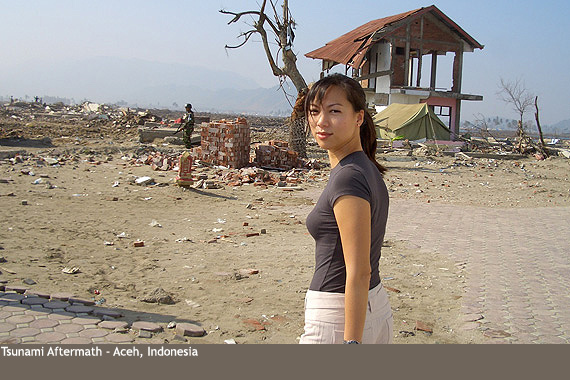|
Where the Sun Rises
also known as "A Hero's Journey" |
|
 |
|
| |
|
Director's Statement
When Where the Sun Rises was conceptualized, I was not thinking about East Timor nor Xanana Gusmao. It was September 2004, and horrific events were unfolding in Beslan, Russia, where a group of Chechen rebels had taken a school hostage on the first day of the new school year. It ended in tragedy. Hundreds were killed, including many young children. The people of Beslan will never be the same. I could foresee that Moscow would retaliate against the rebels with a heavy hand – and they did. It was an acceleration of another cycle of violence. I considered other cycles of violence, in areas where fighting has gone on for so long that people can no longer distinguish with accuracy between an “attack” and a “retaliation” (Israel/Palestinians). There are also the post-conflict regions where fighting may have ceased, but the wounds are still raw and the hatred still palpable, and people are unable to carry on with the business of living (Bosnia-Herzegovina, Rwanda, Sierra Leone). So, how do we exit from these vicious cycles? Perhaps there is no way – unless one considers adding a fresh and powerful element into the bitter mixture.
Where the Sun Rises is an exploration of the nature and power of forgiveness, and its potential for freeing lives. This film borrows the story of East Timor's struggle for independence, and leans heavily on the experiences and personal transformation of its leader, the former guerilla Xanana Gusmao – an extraordinary man who has made the prolonged and painful journey through war, prison and sacrifice for the liberation of his people. This man has come to a courageous and enlightened place of forgiveness, but discovers that leading his newly independent country along the necessary path of reconciliation and nation building is the new struggle in the long, hard road to genuine freedom.
No one who has never lived through war truly understands war. And only someone who has every justifiable reason to hate, to desire justice or revenge, and yet has somehow managed to walk the path of grace to relinquish bitterness and embrace former enemies, truly understands forgiveness and reconciliation. I find that forgiveness is counter-human nature – something most of us are unable to truly grasp with our rational minds and intellect. It is something bordering the realm of the miraculous, almost divine. On the other hand, the sense of justice is something which is deeply ingrained in the human DNA, something that even young children understand without needing to be taught: recall the last time a child said to you, “It's not fair!” Yet, forgiveness has the surmounting power to reach where justice cannot go and where it fails to satisfy; and to liberate where hatred and bitterness – even when justified -- only trap and imprison. For these reasons, I have chosen Xanana Gusmao with whom we go on a journey of exploration – physically across cloud-enshrouded mountains, emerald jungles and turquoise seas; through time across the recent history of East Timor; along a spiritual journey of transformation from hatred to peace of mind.
Thank you for coming on this journey.
Grace Phan
Director |
|
|
|
|



